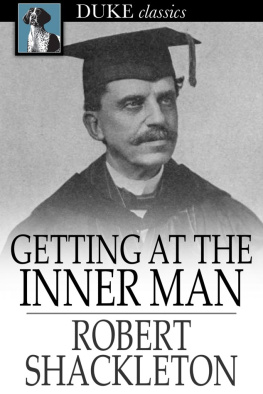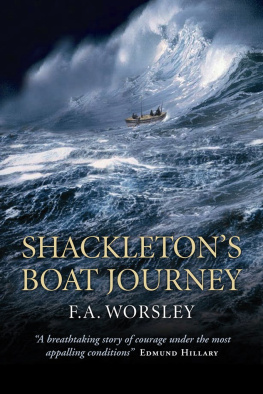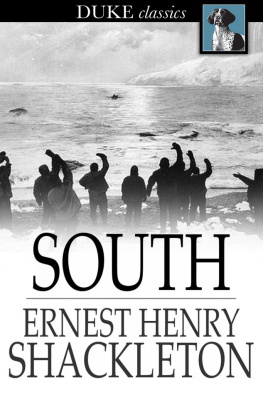Chapter I -Insiders And Outsiders
PHILADELPHIA is the City of Brotherly Love; but if you hope to receive a share of the brotherly affection it makes a great deal of difference whose brother you happen to be. And, more than that, it is looked upon as of prime importance to know not only whose brother you are, but whose son or daughter, whose grandson or granddaughter you are, who were your great-grandparents, even who were your great-great-grandparents. No other American city so coldly cuts its social cleavages; no other has raised and upheld such unbrotherly barriers. There are not only brothers but others! If one is outside of certain lines and circles of consanguinity, Philadelphia is not the City of Brotherly Love but the City of Unbrotherly Indifference.
All this would have immensely surprised William Penn himself, who hoped so ardently for the growth of an actual Philadelphia as the capital of his Sylvania. The city whose name meant fraternal affection was to be in the midst of a smiling sylvan colony. But the English King gave the first touch of exclusiveness to the new colony by his merry prefixing of Penn's own name to Sylvania, and neither the entreaties of Penn, which were laughed away, nor his offer of a bribe of twenty guineas to the undersecretary who engrossed the charter; a bribe which was refused by the wary clerk, who, though he loved money much, feared the Merry Monarch more; could suffice to take away what Penn deemed the un-Quakerlike use of his own name; he deplored the un-Quakerlike appearance of personal vanity.
In Philadelphia, family is a fetish. And yet, it is far more than a city of families. It is markedly a city of individuality, of individualities, a city of character and of characters; it is a city of a character which comes more from individuals than from families, intense though family worship is. In this frank dependence on individuals for its fame and progress, the city presents an odd contrast in the deference which it at the same time so frankly yields to local lineage.
And, strangest of all, for this City of Unbrotherly Indifference to outsiders and love for insiders, is the fact that its accepted leaders, its greatest men, have been frankly outsiders!
Penn himself was the first example. Being the founder, he could not well avoid being an outsider; but instead of making himself an insider, by taking up his permanent home here, or even by living here for many years or making frequent visits, his personal stay in the city and province of his founding was brief.
William Penn had excellent grounds for that family vanity which is so marked a trait of the city he founded. His ancestors were not such as sat upon the remote edges and outskirts of history. One Penn was even so distinguished as to have much to do with that long-established English institution, the Saturday night bath, for, as barber to Henry the Eighth, from whose reign until well into that of Victoria the week-end bath was a fashion firmly fastened, he was expected always to be present and, as the old phrasing has come down, ''always useful." And he had his reward, for in a painting by Holbein representing a group of barber-surgeons receiving a charter from King Henry, he is gravely prominent, as befits the barber of a king.
William Penn's own father, who was very much the opposite of a Quaker, found a road to fame by becoming an admiral, gallant and capable, thus quite eclipsing, in the opinion of most of the English, his non-fighting son, who merely founded a great commonwealth and a great city.
In the beautiful Church of St. Mary Redcliffe, in old Bristol, which Queen Elizabeth declared to be the fairest and goodliest parish church in England, I saw the monument of Admiral Penn, with his coat of arms and his armor set in impressive prominence on the wall, and with a lengthy laudatory inscription, naming title after title that he had won, and quaintly ending, that he had "in much Peace arived and Ancord In his Last and Best Port.''
Very different is this proud monument in the beautiful old church from the monument to William Penn himself; yet the sweet austerity of William Penn's last resting place outdoes that of his father in impressiveness. For the founder of Philadelphia rests in an out of the way nook in rural England, a lonely spot called Jordans, where stands a tiny Quaker meeting-house, and his grave is marked only by a low-set stone, and all is peace and restfulness, and the honeysuckle, the fragrant stock, the white roses, grow close about the stone, and in the charming austerity there is immense impressiveness.
The family and the descendants of William Penn followed his example in not staying in Philadelphia, either living or dead, admirable city though from the first it has been. Of the thirteen children of Penn, seven by his first wife, she of the unexpectedly romantic name of Gulielma, often affectionately shortened by him to "Guli," and six by his second, Hannah Callowhill, a name retained in Philadelphia by unromantic Callowhill Street, only one was even born in America, his son John, and none was buried here. A later John, a grandson of William, and also governor, died here in 1795 and was buried in the cemetery of Christ Church; but the body was shortly taken up and carried to England.
By accepting perforce the prefix of "Penn" to the name of the colony, and by the effect of his own personality, Penn himself gave the note of individuality which has throughout the passing years marked the city.
Over and over again one notices similitudes between Philadelphia and Boston, and curiously the two old cities are indeed alike, with the likeness dependent in great degree upon the loyalty to family descent, But in comparing the two cities, one may constantly notice the contrast that it was families that made Boston, but individuals who made Philadelphia.
And again and again, once the fact is realized, one comes back to that curious fact that the greatest individuals of Philadelphia were not really of the city. Cold as Philadelphia is and has always been to outsiders, difficult as it is and has always been for outsiders to become affiliated aphiladelphiated, so to speak it is to outsiders, and not to insiders, that Philadelphia mainly owes her achievements and her prestige.
Franklin, more than any other individual, represents and characterizes Philadelphia; and Franklin dropped in quite casually from Boston, and quite without the backing of proud New England family connection. That his father was a pious and prudent man and his mother a discreet and virtuous woman, as he himself expressed it on the epitaph which he wrote for their monument, covered all that could be said on that score; and this was nothing at all from the viewpoint of family.
Yet Philadelphia, like Boston, stands in extraordinary degree for the sense of respectability which lies in family permanence.
Next to Franklin, no name is so closely associated with Philadelphia as that of Stephen Girard; and Girard was a native of France, whose Philadelphia advent was even more casual than that of Franklin; for with his ship he slipped into Philadelphia in a successful effort to escape English privateers, and, rather than go out to certain capture, stayed on, and became a great Philadelphia merchant.
Robert Morris, the financier of the Revolution, the great Philadelphian who financially saved the country, was English born, and Jay Cooke, the financier of the nation during the Rebellion, was an Ohio man. It is a curious similarity, in regard to these two outsiders who became so important, that each of them, after saving the nation financially, failed in his own finances and lost everything. And an unhappy dissimilarity is that although Jay Cooke happily rehabilitated himself financially, Morris, the greater man of the two, unhappily did not.







